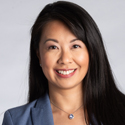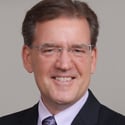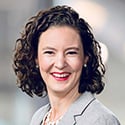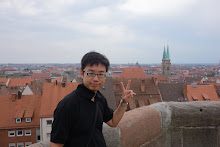https://www.soa.org/programs/elections/2023/2023-board-results/
2023 Board Election Results
The Society of Actuaries (SOA) announces the results of the 2023 Board of Directors Elections. Five Board members and one President-Elect and Vice-Chair have been elected to serve starting with the 2023–2024 term. Thank you to all SOA members who voted in the 2023 election.
Board Results
We welcome the elected members of the SOA Board of Directors.

Sherry Chan, FSA 2016, EA 2017, MAAA 2008, FCA 2002
Chief Strategy Officer
Atidot
New York, NY

Gabriela Dieguez, FSA 2010, MAAA 2007
Equity Principal & Consulting Actuary
Milliman, Inc.
New York, NY

Jackie Lee, FSA 2009, MAAA 2007
Vice President & Principal
Lewis & Ellis, Inc.
Plano, TX

Daniel Pribe, FSA 2001, MAAA 1995
Vice President and Chief Actuary
Lumeris
St. Louis, MO

Ying Zhao, FSA 2006, MAAA 2005
Associate Partner
McKinsey & Company
Chicago, IL
The newly elected Board members will join the continuing Board members Karen Burnett, FSA, FCIA; Ian Duncan, FSA, FIA, FCIA, MAAA, FCA; Sara Goldberg, FSA, MAAA; Dave Ingram, FSA, CERA, MAAA; Lisa Kuklinski, FSA, MAAA; Melody Prangley, FSA, MAAA, EA, FCA; Kelly Rabin, FSA, MAAA, CFA; Mary Beth Ramsay, FSA, MAAA; Si Xie, FSA, CERA, FCIA; and Mercy Yan, FSA, FCIA, MAAA.
The SOA thanks the members who will complete their terms with the SOA Board following the October Board Meeting. The members rolling off are past president Jennifer L. Gillespie, FSA, MAAA; Arpita Das, FSA; Josée Deroy, FSA, MAAA, CFA; and Nazir Valani, FSA, FCIA, MAAA.
President-Elect and Vice-Chair Results

Amanda Hug, FSA 2013, MAAA 2013
Director
Willis Towers Watson (WTW)
New York, NY
Congratulations to Amanda Hug, FSA, MAAA, who will serve as the 2023–2024 SOA President-Elect and Vice-Chair. Amanda will finish her term as an SOA Elected Board Member to become the 76th president. Some of her other organizational involvements include currently chairing the Governance and Policy Committee and formerly chairing the Taskforce for Evolving the FSA Pathway, as well as currently being Board Liaison for the Diversity, Equity & Inclusion Committee, and formerly with the Research Executive Committee, Sections/Communities, Young Professional Advisory Committee and Professional Development Committee.
During her term, Hug will lead the SOA Board of Directors. Along with her fellow Board members, Hug will vote on important strategic decisions to ensure they will fit within the SOA Long-Term Growth Strategy and Strategic Plan.
For the 2023–2024 term starting in October, Amanda Hug, FSA, MAAA, will serve as the President-Elect and Vice-Chair, joining Timothy Rozar, FSA, MAAA, CERA, who will serve as SOA President for the 2023–2024 term. John W. Robinson, FSA, MAAA, FCA, will serve as past president for the 2023–2024 term.
Voting Process
Vote Totals for President-Elect and Vice-Chair Candidates
Candidate Name | Votes | Percentages |
Amanda Hug, FSA 2013, MAAA 2013 (Endorsed) | 2,811 | 54.7% |
Dave Dillon, FSA 2004, MAAA 2002 (Endorsed) | 2,328 | 45.3% |
Total Valid Ballots: 5,139
Total Unexercised: 157
Total Ballots Cast: 5,296
*In 2023 there was no preferential vote as there were only two candidates for the President-Elect and Vice-Chair position.
Past Three Years Vote Counts:
Year | Count | Percent of Eligible Voters |
2023 | 5,489 | 18.99% |
2022 | 5,265 | 19.25% |
2021* | 4,719 | 18.32% |
*The 2021 election cycle took place over two business weeks instead of three as in current and previous elections.
The question appears to be a mix of Chinese characters and phrases related to philosophy. It seems to be discussing the intersections of Chinese philosophy, Western philosophy, mathematics, and possibly other subjects. However, the question is not entirely clear, so I will provide some information related to these topics based on the provided search results.
Philosophy in Taiwan: The search result from National Taiwan University's Philosophy Department mentions courses like "History of Chinese Philosophy" and "History of Western Philosophy"[1]. This suggests that in Taiwan, students can study both Chinese and Western philosophy as part of their academic curriculum.
Philosophy Courses: The document from Fu Jen Catholic University's Philosophy Department lists courses like "Knowledge Theory" and "History of Chinese Philosophy," which might be relevant to the question[2].
Benefits of Studying Philosophy: The search result titled "想讀哲學學類嗎?讓ColleGo!告訴你!" (Thinking of studying philosophy? Let ColleGo! tell you!) mentions that studying philosophy can help develop critical thinking skills and the ability to express ideas logically[3].
Chinese Philosophy: The search result mentioning "道家哲學、魏晉哲學、先秦哲學、中國哲學方法論與史料學" (Daoist philosophy, Wei-Jin philosophy, pre-Qin philosophy, Chinese philosophical methodology, and historiography of philosophy) suggests that there are specialized courses in various branches of Chinese philosophy[4].
Western Philosophy: Western philosophy is referred to as "西方哲學" (Western philosophy) in Chinese, and it has a long history dating back to ancient Greece[5]. It has significantly influenced philosophical thought worldwide.
In summary, the question seems to be about the study of philosophy, particularly Chinese and Western philosophy, and its potential intersections with other fields like mathematics. However, the question is somewhat unclear, so if you have specific aspects or details you would like to know more about, please provide further clarification.
---
論精算 神算 廟算-以中國哲學 西洋哲學 數學哲學屌之
Sources
Answer
The question appears to be a mix of different terms and concepts from various fields of study. Let's break down the elements mentioned:
論精算 (Actuarial Science): Actuarial science is a discipline that deals with assessing financial risks using mathematics, statistics, and financial theory. Actuaries often work in insurance and pension industries to determine premiums, reserves, and other financial aspects. They use complex mathematical models to predict future events and their financial implications.
神算 (Divine Calculation): This term is not standard in any academic field. It might refer to the concept of divine or supernatural calculations, possibly found in religious or philosophical contexts. Without more context, it's challenging to provide a precise definition.
廟算 (Temple Calculation): Similar to the previous term, "temple calculation" is not a standard term in any academic discipline. It could be related to cultural or religious practices associated with calculations within temples or specific belief systems.
中國哲學 (Chinese Philosophy): Chinese philosophy is the philosophical tradition of China. It encompasses various schools of thought, such as Confucianism, Taoism, Legalism, and more, which have influenced Chinese culture and beyond.
西洋哲學 (Western Philosophy): Western philosophy is the philosophical tradition of Western cultures, including the works of ancient Greek philosophers like Plato and Aristotle, as well as modern philosophers such as Kant, Nietzsche, and others.
數學哲學 (Philosophy of Mathematics): Philosophy of mathematics is a branch of philosophy that explores the nature and foundations of mathematics. It addresses questions about the existence of mathematical objects, the nature of mathematical truth, and the relationships between mathematics and reality.
Given the mix of these terms and the lack of a specific question, it's challenging to provide a concise answer. If you have specific questions about any of these topics, please feel free to ask, and I'll provide more detailed information based on the terms you're interested in.



